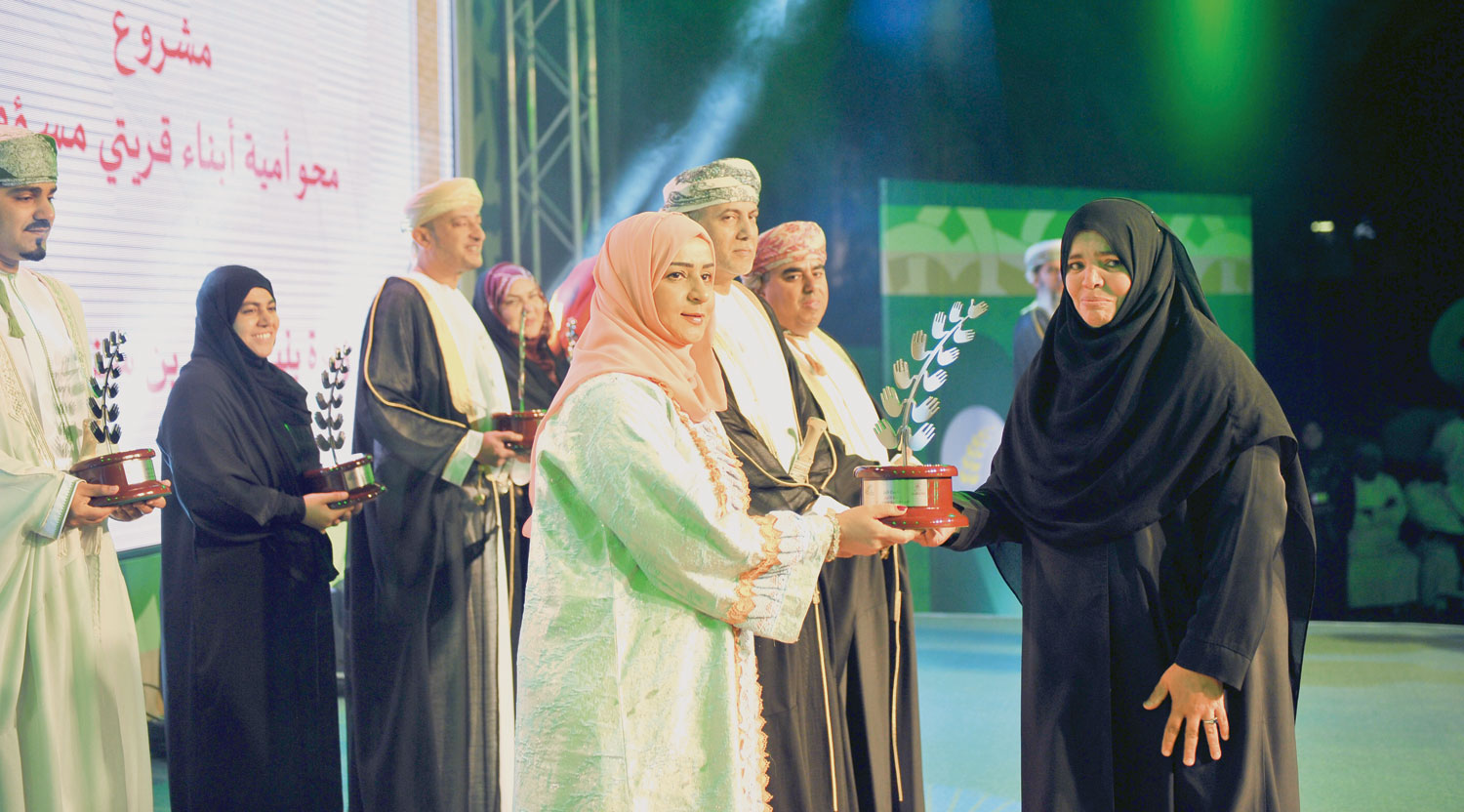

MUSCAT, Dec 9 - Zahra Salem Sanoor al Aufi had no words to describe how thrilled she was to receive the honour. “I am so happy... I am speechless as I never thought I would receive this award. It’s an honour for me to receive such a prestigious award,” she told the Observer after receiving the Sultan Qaboos Award for Voluntary Work, 2017.
Zahra received the award for her project, ‘Erasing illiteracy in my village is my responsibility’.
Assigned by His Majesty Sultan Qaboos, Shaikha Ayesha bint Khalfan bin Jamil al Siyabiyah, chairperson of the Public Authority for Craft Industries (PACI), presented the award at the fifth edition of Sultan Qaboos Voluntary Work Award (SQVWA) 2017 recently.
The award is a “validation of all the commitment and hard work” she has been extending to women in some villages in the wilayat of Al Hamra in the Governorate of Al Dakhiliyah.
Zahra, initially, began by encouraging children in the age group five to ten years to memorise Holy Quran at her home. During this time, she learnt from them that their parents were illiterate.
“I visited families of those children and was shocked to realise that they were just reciting the verses of the Holy Quran without knowing how to read it,” she said.
It was at this juncture that she decided to extend the project to other villages so that more women could benefit from it.
“I taught those women the basics of Holy Quran for two years. I also thought of making more efforts and spending more time with them. I cooked food and spent my salary for the purpose,” said Zahra. Apart from teaching Holy Quran, Zahra also taught them how to write and read along with imparting knowledge in mathematics and science.
After four years, the project was expanded to include people from villages that were far away.
Twelve branches were subsequently opened.
The activities expanded to include pre-school education.
The budget for the project’s operational costs were met by preparing snacks and selling them to public schools and shops in Al Hamra.
She spent the profits for buying books, educational tools and honour the outstanding children.
She also used the money to reward the teachers and pay rent for buildings where the schools functioned.
The project now includes 12 schools with 20 teachers.
Friends, neighbours and families described Zahra as a “long-time dedicated supporter”
of the local community.
SAMUEL KUTTY
Oman Observer is now on the WhatsApp channel. Click here



